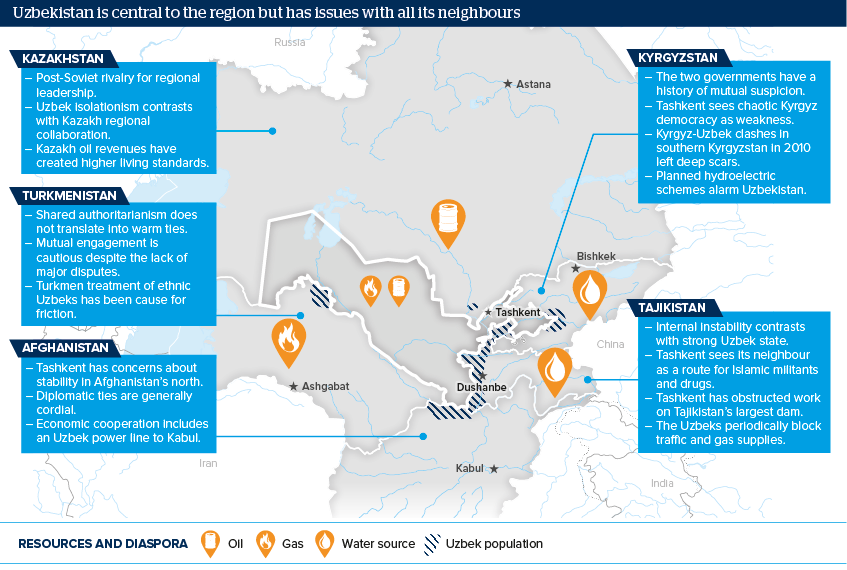Uzbekistan may try to ease troubled regional ties
The new president has shown signs of willingness to seek a reset in relations with neighbouring states
Source: Oxford Analytica
Outlook
Aspiring to regional leadership, post-Soviet Uzbekistan alienated rather than engaged with the four Central Asian states surrounding it. Following the death of long-serving President Islam Karimov in early September, his acting successor Shavqat Mirzioyev (likely to be elected in December) has reached out to Kyrgyzstan and Tajikistan, with which Uzbekistan is in dispute over hydroelectric schemes that it fears will starve it of water downstream.
If Mirzioyev is serious about this new diplomacy, it could start to break down the mistrust that blocks regional cooperation and ease tensions over border disputes and the Uzbek minority in southern Kyrgyzstan. If water issues prove intractable, Uzbekistan may relapse into difficult, isolationist behaviour.
Impacts
- If completed, Tajikistan's giant Roghun dam project will secure power supplies but wreck ties with Uzbekistan.
- Tashkent will pursue relations with Moscow and Beijing without binding itself wholly to either.
- Cross-border instability from Afghanistan is a concern, but Turkmenistan and especially Tajikistan are more at risk.
See also
- Uzbek-Kazakh thaw can ease tensions and reshape region - Oct 13, 2017
- Ending Central Asian water impasse looks more possible - Jul 12, 2017
- Uzbekistan seeks to improve economy through diplomacy - Jun 26, 2017
- Uzbek leader seeks energy ties with Turkmenistan - May 22, 2017
- More open Uzbekistan seeks Chinese engagement - May 15, 2017
- Kyrgyzstan will seek hydropower funding - Mar 14, 2017
- Early signs of change may wither in Uzbekistan - Dec 14, 2016
- Prospects for Central Asia in 2017 - Nov 4, 2016
- Central Asia may win from Uzbek thaw with neighbours - Nov 2, 2016
- Post-Karimov Uzbekistan lacks forces for change - Sep 6, 2016
- More graphic analysis
